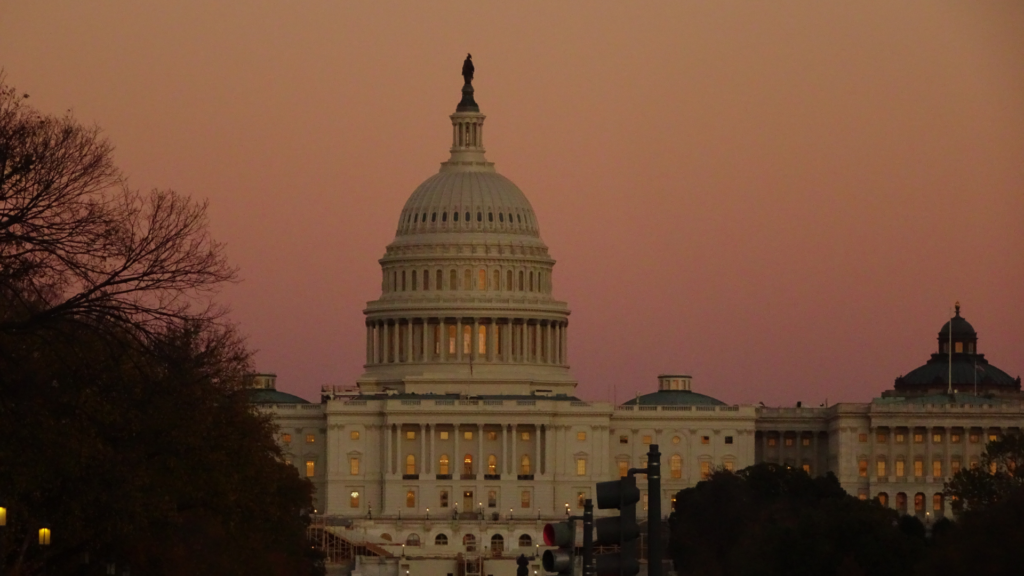“In God we trust” – That is the American national motto. But why do we trust God? Such a question can lead to some serious confusion, especially when one does not adhere to a religion. So why should those who are not particularly religious adhere to such a motto?
The American Founding was predicated upon the idea that our rights come from God and are, as such, inalienable. Americans, historically speaking, do not have an excellent track record of taking kindly to those who insist that we ought to put more faith in government than we do in God. In today’s world, however, younger generations of Americans are becoming increasingly secular, with both millennial and gen-z Americans being the most secular generations in our nation’s history. In the absence of God, the rise of secularism accompanied a greater faith in government benevolence. As a result, skepticism towards increased government influence, once thought to be built into the American psyche, is at an all-time low.
I have come across those who are often perplexed at my conservatism, knowing that I do not adhere to the Christian faith. After all, the most staunchly conservative political figures, such as Dennis Prager, will routinely say that organized religion is imperative for preserving a moral society. Regarding this topic, the famous quote from the second President of the United States, John Adams, is often cited: “Our Constitution was made only for a moral and religious people. It is wholly inadequate to the government of any other.”
Well, yes and no.
It is possible to be a moral human being without adhering to an organized religion. Following the basic moral rules that Jesus Christ tells us to live such as Thou shall not steal or Thou shall not murder, do not necessarily require one to be Christian to be applicable in daily life.
Of course, the idea that a person must be religious to be moral is most likely not the point most conservatives are making. Instead, we must appreciate the Judeo-Christian value system’s natural disposition to provide order and structure in the place of chaos and nihilism. The vast majority of those who criticize Judeo-Christian values, a predominantly left-winged criticism, denounce it as ‘outdated,’ or ‘morally and socially authoritarian,’ with the latest criticism even calling it a bastion of white supremacy, courtesy of America’s ‘antiracist’ activists.
In other words, as an agnostic, I do not see the Judeo-Christian value system as an affirmation of religious faith, but rather an affirmation of the American nation. It is conservatism’s response to the ever-raging culture war against us. Judeo-Christian values represent the cure for a society that is growing increasingly apathetic towards our founding principles. Increasingly, secular generations abandoned the concept of a higher power. This has created an increasingly pessimistic, or even nihilistic, culture that, in the absence of God, offers prayers upon the altar of outrage culture and reinforces the patently absurd notion that we are defined by what identity group we belong to and how oppressed we are.
It is not necessarily so absurd to suggest that this novel type of worldly cynicism has become a leading factor in our youth’s notoriously bleaker outlook on life than their predecessors.
Due to this profound shift in the American socio-cultural environment, traditional ideas that have historically been the pinnacle of America’s inherent uniqueness— such as its emphasis on individualism and the autonomy of local communities, rather than an unchecked federal bureaucracy that must micromanage our society— have been stigmatized in our modern culture as part of the left’s relentless pursuit of ‘progress.’
In the eyes of the left, progress means doing away with the idea that the government ought to think twice before issuing draconian lockdown executive orders, vaccine passport requirements, or stricter gun control measures designed to disarm the public while doing little to disarm those who commit crimes. It also means affirming the idea that the United States is an inherently evil and racist country that was never great and that its current citizenry must atone for the inescapable sins of our ancestors.
This means disavowing the American Founding principles, derived from the enlightenment ideas of John Locke, Thomas Hobbes, and many other great thinkers. It means zeroing in on the fact that most of our founders were slave owners, which means that we should completely abandon historical context and use their ownership of slaves to construct an anti-historical narrative that discredits the American Constitution and universal ideals as an inherent evil, born from the hellish fires of racism.
Any attempt at refuting this anti-historical and illogical worldview is often met with arrogant dismissal, cancellation, or censorship.
For these reasons, I still believe we need God in our politics. It is not because religion is the be-all and end-all of Western Civilization, but rather because the Judeo-Christian value system has historically catalyzed a just and apparent moral authority and structure that helps to construct a well-rounded, prosperous society.
Even without organized religion to elaborate on that belief, the belief in a higher power often comes with the humbling realization that we are a part of — and ultimately at the mercy of — something bigger than ourselves. It does not matter if you are an agnostic, Christian, Muslim, or anything else. Nevertheless, the basic belief that we are one nation under God, with liberty and justice for all, is something that can be applied to all people of all faiths who want to be a part of this two-and-a-half century-long experiment we call America.
Luke Lattanzi, Staff Writer and Contributor at American Pigeon







